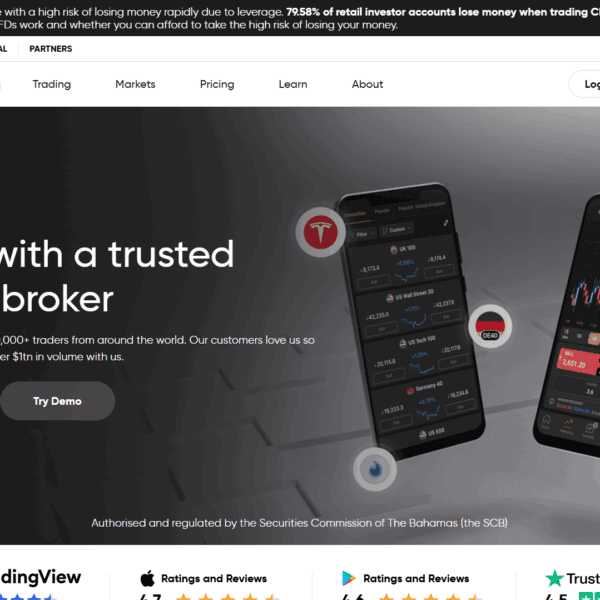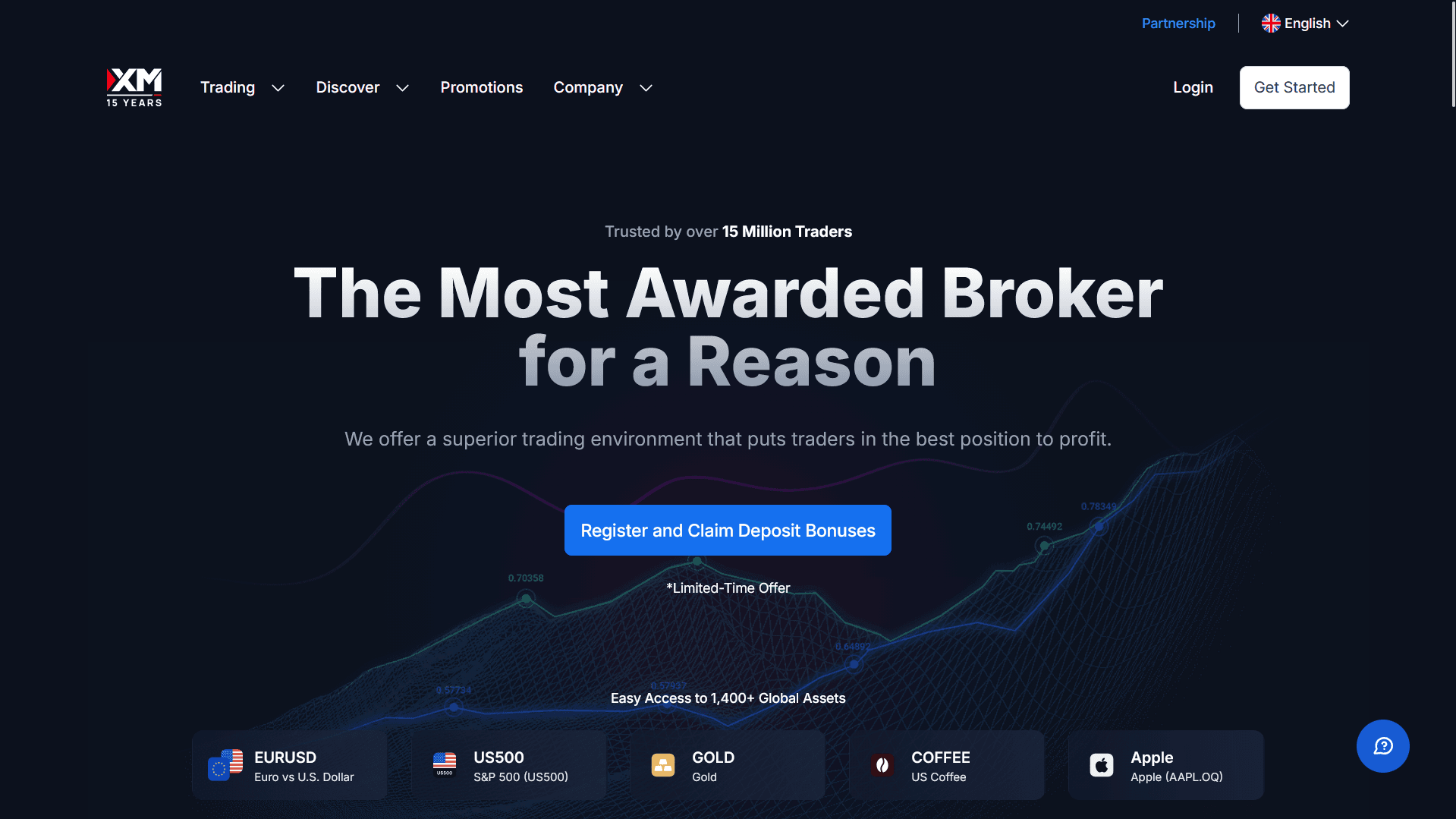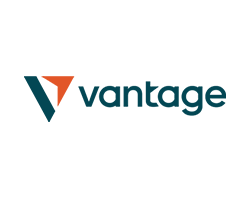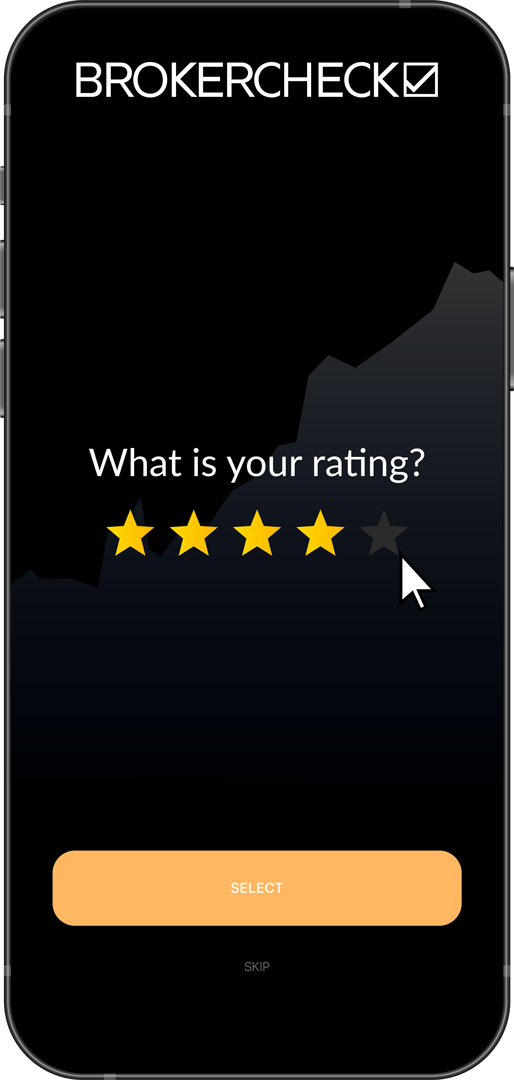1. Defining Key Brokerage Terms
Before plunging into the depths of the trading world, it’s crucial to have a firm grasp of the key brokerage terms. The first term to understand is Direct Market Access (DMA). This term refers to when brokers allow their clients to interact directly with the financial market, without the need for a middleman. This means traders have the ability to place buy and sell orders directly with the market maker of a given security.
Another significant term is Straight Through Processing (STP). This refers to the process that allows for the entire trade process, from initiation to execution, to be conducted electronically without the need for manual intervention. STP brokers, therefore, match traders’ orders with other traders automatically, reducing the time it takes to execute trades and reducing the opportunity for errors.
Electronic Communication Network (ECN) is the term for a type of computer system that facilitates trading of financial products outside of stock exchanges. ECN brokers provide and display real-time order book information (featuring buy and sell orders pending execution) and are typically used by professional, high-volume traders who require instantaneous execution of large volumes.
In contrast, Market Makers are brokers that provide liquidity to the market by continuously buying and selling securities at their own risk, at prices displayed on their trading systems. This means they are always ready to buy or sell, providing a steady flow of orders to the market. A Market Maker’s goal is to make a profit on the spread, which is the difference between the buy and sell price.
Each of these types of brokers operates differently, and each has its advantages and disadvantages. DMA/STP/ECN brokers often offer lower spreads and are more transparent, but may charge commissions and require higher minimum deposits. Conversely, Market Makers, while they may have wider spreads, generally don’t charge commissions and have lower minimum deposit requirements. Therefore, when deciding which type of broker to choose, traders must consider their individual trading style, strategy, and financial goals. It’s of paramount importance for traders to thoroughly research and understand each broker type before making a decision.
1.1. Understanding DMA (Direct Market Access)
Direct Market Access, or DMA, is a trading method that provides traders with a direct connection to the financial markets. This means that traders can directly place orders on the Order Book of an exchange, bypassing the need for a broker to facilitate the trade. This method delivers a high level of transparency, as traders can see live prices and available market depth, making it a popular choice for professional and experienced traders who want unrestricted access to the market.
In a DMA setup, the trading decisions are made by the trader, which gives a high level of control over the trading process. Unlike traditional setups where the broker decides the best price for buying or selling a security, with DMA, the trader has the authority to specify the exact price they want to trade at. This independence can be both an advantage and a challenge, depending on the trader’s strategy and skill level.
Benefits of DMA Trading
A significant benefit of DMA is the speed of execution. Since orders are placed directly on the market, the trade execution is generally faster than other trading methods. This can be a crucial advantage for strategies like scalping or high-frequency trading where speed plays a critical role.
Another benefit is improved liquidity. With DMA, traders have access to a broader range of liquidity providers, which can lead to tighter spreads and better trading conditions.
Cost is another important factor. DMA traders can typically expect lower transaction costs as they are not paying a brokerage firm to execute their trades.
However, one should also consider the challenges. DMA requires a higher level of market knowledge and trading skill, as the trader is responsible for all trading decisions. Also, the cost of accessing the direct market feed can be higher compared to using a broker’s platform, which may include these services in their fee.
Furthermore, DMA trading does not guarantee against losses. As with all trading methods, there is a risk of losing capital, and traders should ensure they understand these risks before engaging in DMA trading.
Understanding the Requirements
To use DMA, traders typically need a specialized trading platform capable of connecting directly to the market’s electronic systems. This platform may be provided by a broker offering DMA services, or traders may choose to use a third-party application. However, these platforms often require a higher level of technical understanding to operate effectively.
To sum up, DMA provides traders with direct access to the market, offering several advantages like speed, transparency, and control over the trading process. However, it also brings certain challenges and requirements that traders must be prepared to handle. It’s crucial for traders to weigh these factors against their trading goals, skill levels, and risk tolerance.
1.2. Exploring STP (Straight Through Processing)
When diving into the world of trading and brokerage, it’s crucial to understand the varied types of brokers and how they function. One such broker type utilizes Straight Through Processing (STP). In simple terms, STP brokers send orders directly from clients to the liquidity providers, which are typically banks, hedge funds, other brokers, or financial institutions. The primary advantage of this approach is the absence of a dealing desk, which indicates no manual intervention into your trades, thus enhancing transparency and execution speed.
As an STP broker operates, it matches your order with the best available price from one of its liquidity providers. This process ensures that traders get the most competitive spreads due to the broker’s connections with multiple liquidity providers. While this type of broker might charge a slightly higher commission per trade, traders generally find it to be a fair trade-off for the improved execution speed and transparency.
The STP model also eliminates conflicts of interest commonly seen with market makers. With market makers, there’s a potential for the broker to manipulate prices or trade against the client. However, STP brokers make money through markups or commissions regardless of whether the trader wins or loses the trade, encouraging them to provide the best possible trading conditions to their clients.
It’s essential to note that not all STP brokers operate the same way. Some might offer fixed spreads, while others offer variable spreads. The type of STP broker you choose to work with may depend on your individual trading needs and preferences. While some traders are comfortable with the predictability of fixed spreads, others might benefit from the potentially lower spreads offered by brokers with a variable spread model.
Additionally, while STP brokers generally offer faster trade execution than market makers, this may not be the case during periods of high market volatility or low liquidity. These are scenarios in which the STP model’s inherent dependence on liquidity providers can become a disadvantage. During such times, orders may be subject to slippage, which is when an order is executed at a less favourable price than expected.
In essence, understanding the STP model can help you make an informed decision when choosing a broker. The transparency, speed, and competitive pricing can make STP brokers a desirable choice for many traders. However, it’s also important to take into account the potential drawbacks and ensure the broker’s offering aligns with your trading style and objectives.
1.3. Unpacking ECN (Electronic Communication Network)
Today, we delve deeper into the world of ECN (Electronic Communication Network), a vital component of online trading. ECN acts as an efficient, automated system that matches buy and sell orders for securities. ECNs, in essence, are digital systems that serve as a bridge between small market participants and liquidity providers through a Forex ECN Broker. This seamless connection ensures that investors can trade directly without any middleman.
How does ECN work? It’s quite simple. Here’s an analogy. Imagine a bustling marketplace where traders are shouting out their best prices for commodities. Now, replace this physical marketplace with a digital one where buyers and sellers interact through software. That’s essentially what an ECN does. It electronically matches buyers and sellers to execute trades, reducing the role of traditional intermediaries such as market makers or broker-dealers.
Why does this matter for traders? ECN’s major advantage is efficiency. Since the entire system is automated, trades are executed almost instantaneously. This system minimizes slippage – the difference between the expected price of a trade and the price at which the trade is executed. Also, it reduces the chances of re-quotes.
Moreover, since ECN connects traders directly to the market, it offers greater transparency. Traders can access real-time price information and the market’s ‘depth,’ which includes information about the number of buyers and sellers at different price levels. This transparency allows traders to make more informed decisions.
In addition, ECN provides anonymity, which can be particularly beneficial for traders who want to move large volumes without drawing attention. On an ECN, trading activity can’t be traced back to the individual, allowing investors to trade quietly without others anticipating their moves.
ECNs also provide greater price competition. Since they aggregate price quotes from several market participants, they offer traders the best available bid and ask prices. This competition can result in tighter spreads – the difference between the buy and sell price.
One drawback, however, could be the costs associated with it. ECN brokers usually charge a fixed commission per transaction. While this is a transparent pricing structure, it may add up to significant costs for high-frequency traders.
Finally, it’s worth noting that not all ECNs are equal. The level of service, fees, and even the type of clients they cater to can vary significantly. As such, it’s essential to do your homework before choosing an ECN broker. Whether you’re a novice trader or a seasoned veteran, understanding how ECN works can help you make more informed trading decisions and potentially improve your trading performance.
1.4. Defining Market Makers
In the world of trading and investing, understanding the roles of key participants is vital. A Market Maker plays a significant role in the financial markets, ensuring liquidity and smooth functioning of the markets. They are typically large banks or financial institutions that are always ready to buy or sell financial instruments, such as stocks, bonds, or currencies, at a publicly quoted price.
Market Makers create a market for the particular security by setting bid (buy) and ask (sell) prices. They essentially stand ready to sell to a buyer at the ask price and to buy from a seller at the bid price, profiting from the spread between these two prices. This way, they facilitate trade execution without delays, even when there is a temporary imbalance in the supply and demand. The bid-ask spread represents their compensation for taking on this risk.
Another essential role of Market Makers is to absorb large volumes of securities and mitigate price volatility. By doing so, they contribute to the overall stability of the financial markets. A sudden large buy or sell order could significantly impact the price of a security. However, by stepping in and filling these orders, Market Makers prevent such drastic price movements.
However, it’s important to note that while Market Makers play a crucial role, their activities can sometimes lead to potential conflicts of interest. As they are responsible for setting the prices, there might be instances where they could potentially manipulate these prices to their benefit. Therefore, it’s crucial for traders and investors to understand this aspect and take it into consideration when making their investment decisions.
Interestingly, Market Makers play a different role in the context of DMA (Direct Market Access), STP (Straight Through Processing), and ECN (Electronic Communication Network) trading models. These models allow traders to interact directly with the market or other participants, bypassing the Market Makers. In these models, the prices are determined by the market itself (supply and demand), rather than being set by a Market Maker.
This distinction can have significant implications for traders, particularly high-frequency traders and scalpers. By trading directly on the market or with other participants, they may be able to achieve better execution and more competitive pricing. But at the same time, they might face other challenges like partial fills or slippage, especially in less liquid markets.
Therefore, understanding the role and functions of Market Makers, as well as the alternative trading models, can help traders and investors make more informed decisions and navigate the financial markets more effectively.
2. Choosing the Right Trading Model for Your Needs
Understanding the different types of trading models and their unique features is the first step towards identifying the one that aligns best with your trading needs and strategies. Direct Market Access (DMA), Straight Through Processing (STP), and Electronic Communication Network (ECN) are three types of trading models that offer specific advantages to traders.
DMA gives traders a direct connection to the market where they can see live prices and trade directly with market participants. This type of trading model is preferred by traders who seek full transparency, as they can view the complete depth of the market, including all buy and sell orders. However, DMA generally requires a larger capital amount and can have higher transaction costs, something that needs to be taken into consideration when making your choice.
STP brokers, on the other hand, route your orders directly to their liquidity providers, which include banks, hedge funds, and other brokers. This type of model is efficient and swift, reducing the likelihood of re-quotes, and is highly preferred for high-frequency trading. However, similar to DMA, transaction costs may be higher, and spreads can vary, especially during periods of high market volatility.
ECN brokers provide a platform where market participants can trade against each other, bypassing the middleman. This model offers a high degree of price transparency, as traders get to see the actual market depth, including all the buy and sell orders. The downside is that ECN brokers charge a commission on trades, which may reduce profit margins.
In contrast, Market Makers are brokers who take the opposite side of your trades. They create a market internally and provide liquidity by buying from sellers and selling to buyers. This means that they can offer fixed spreads, and the transaction costs are generally lower. However, there can be a potential conflict of interest because when you lose, they win.
Choosing the right trading model depends largely on your individual trading strategy, the amount of capital you’re willing to invest, and your risk tolerance. A trader who values transparency and doesn’t mind higher costs may choose DMA, STP, or ECN, while a beginner who seeks lower costs and predictable spreads might prefer a Market Maker. Always remember to thoroughly research each model and broker before making a decision to ensure it fits your trading needs and style.
2.1. Factors to Consider When Choosing a Brokerage Type
Understanding the myriad of brokerage types can be a daunting task when starting out as an investor or trader. It is vital to be aware of the unique characteristics of each type to determine which best suits your trading goals and risk tolerance.
DMA (Direct Market Access) brokerages, for instance, allow you to place trades directly onto the book of an exchange. This type of brokerage is ideal for traders who prefer total control over their trades and are looking for transparency, as you will be able to see the structure of the market and the liquidity available at different price levels. However, the requirements for DMA brokers can be quite high, such as the minimum deposit or trading volume, which might not be suitable for beginners.
With STP (Straight Through Processing) brokers, your trades are passed directly to liquidity providers, which can be banks or other brokers. There’s no dealing desk involved, meaning there’s less chance for price manipulation and you get to trade on the true market prices. However, one downside is that STP brokers charge a markup on the spread as their fee, which could impact your trading costs.
ECN (Electronic Communication Network) brokers, on the other hand, provide a platform where market participants can trade against each other, bypassing the middleman. ECN brokers offer some of the tightest spreads, which can greatly reduce trading costs. But similar to DMA brokers, they often require larger deposits and command higher per-trade commissions, which may not be ideal for small budget traders.
Market Makers are different from the aforementioned broker types in that they take the opposite side of your trade. They create their own market and prices, which may differ from the actual market prices. While the execution speed and low minimum deposit requirements of Market Makers can be attractive, especially to new traders, the potential for price manipulation is a factor to be aware of.
Each brokerage type has its own strengths and weaknesses. It’s important to consider factors such as your trading style, capital, risk tolerance, and the broker’s reputation, regulatory status, and customer service when making your choice. Be sure to do thorough research and possibly test the waters with a demo account before deciding on the right brokerage type for you. Always keep in mind that successful trading is not solely about making the right investment decisions, but also about managing costs and risks effectively.
2.2. Using DMA/STP/ECN for Trading
When it comes to trading, choosing the right broker and trading execution method is critical. One widely adopted method is the use of DMA/STP/ECN brokers. DMA (Direct Market Access), STP (Straight Through Processing), and ECN (Electronic Communication Network) brokers offer a type of trade execution wherein they act as a bridge between traders and the liquidity providers which could be banks or other brokers.
DMA/STP/ECN brokers offer a transparent trading environment. This means traders can access real market prices and execute trades directly with the market. This is different from Market Makers who provide their own quotes, which may not accurately reflect the actual market situation. The advantage of DMA/STP/ECN brokers is that they eliminate the conflict of interest that arises when a broker makes money from a trader’s lost trades.
DMA/STP/ECN brokers offer faster trade execution, which is a significant advantage especially for scalpers and day traders. Since these brokers connect traders directly to the liquidity providers, the traders can execute their orders without any delays, which might not be the case with Market Makers. However, it’s important to note that DMA/STP/ECN brokers charge a commission for their services while Market Makers make money from the spreads.
In terms of pricing, DMA/STP/ECN brokers offer more competitive and tighter spreads. This is because the prices come directly from the liquidity providers and there are no markups. On the contrary, Market Makers can manipulate the spreads to their advantage, which might not be favorable for the traders.
In the trading world, slippage is a common phenomenon. This occurs when the price at which a trade is executed is not the same as the expected price. With DMA/STP/ECN brokers, the slippage could be either positive or negative, while with Market Makers, it’s usually negative as they control the prices.
Lastly, it’s worth mentioning that with DMA/STP/ECN brokers, traders get to see the depth of the market (DOM). This provides insight into the market’s liquidity and the available buy and sell orders at different price levels. Market Makers, on the other hand, do not provide this information.
In a nutshell, each trader must carefully consider their trading strategy, risk tolerance, and trading goals before deciding whether to go with DMA/STP/ECN brokers or Market Makers. While the former offers transparency, faster execution, and competitive pricing, the latter may be a better choice for novice traders due to its simplicity and lower initial requirements.
2.3. Opting for Market Makers
Market makers, as the term suggests, are entities that ‘make’ the market. They act as intermediaries, buying and selling securities to maintain a continuous flow of these financial products. They play a vital role in promoting liquidity and efficiency in the markets which is crucial for individual traders and investors. It’s important to understand that Market Makers are not trading against you but are providing a service that allows you to buy and sell securities.
Market makers profit from the bid-ask spread, which is the difference between the price at which a market maker is willing to buy a security (the bid) and the price at which the firm is willing to sell it (the ask). They stand ready to buy or sell securities in quantities desired by traders, providing necessary liquidity to the market, especially in times of less-than-stellar market conditions.
As a beginner trader, the environment created by market makers can be beneficial. They allow for instant trade execution, which can be a significant advantage, particularly in fast-moving markets. The spread is usually fixed, providing a level of transparency and predictability in your trading costs. Moreover, the concept of slippage, which refers to the difference between the expected price of a trade and the price at which the trade is actually executed, rarely occurs with market makers due to their obligation to fill orders at the quoted price.
However, there can be potential downsides too. For instance, there is an inherent conflict of interest in the market maker model as these entities might trade against their clients’ orders to offset risk. The fixed spreads, although transparent and predictable, can be wider than variable spreads offered by ECN or STP brokers.
When opting for a market maker, it’s crucial to consider the reputation and regulatory status of the firm. A well-regulated market maker is required to adhere to stringent guidelines that ensure fair trading practices. Therefore, it is advisable to review the broker’s regulatory status before opening an account.
Upon understanding the role of market makers and how they function, it’s evident that they offer a unique trading environment that can be advantageous to both beginner and seasoned traders. The key is understanding how this model works and aligning it with your trading strategy to effectively navigate the financial markets.
2.4. Comparing DMA/STP/ECN and Market Makers
In the world of financial trading, there are several ways that your orders can be processed. These include Direct Market Access (DMA), Straight Through Processing (STP), Electronic Communication Networks (ECN), and Market Makers. To provide a comprehensive comparison, let’s start with DMA. As its name suggests, DMA allows you to directly trade with an exchange. This method offers high transparency as you’ll be able to see real-time trades and prices. However, its main disadvantage is that it often requires a higher deposit, which might be off-putting for beginner traders.
Moving on to STP, this method sends orders to various liquidity providers directly, without any interference. The chief advantage of STP is its speed – it eliminates the need for a dealing desk, which can slow down the process. However, traders might encounter variable spreads with STP, as prices can fluctuate depending on the liquidity providers.
Next up is ECN, another highly transparent method. ECN works by automatically matching buy and sell orders within the network. This means traders are essentially trading against each other. While this can result in lower spreads, it also means that during times of low liquidity, it could be harder to execute trades. ECN also tends to have higher per-transaction costs.
Lastly, let’s talk about Market Makers. These brokers create an internal market for their clients and directly take the other side of a client’s trade. They typically offer fixed spreads and can guarantee trade execution even in volatile times. However, there could be potential conflicts of interest as market makers can benefit from client losses.
Each of these methods has its own pros and cons, and the choice largely depends on your individual trading style, budget, and risk tolerance. It’s important to understand the differences and choose the one that aligns best with your trading goals. It’s also wise to diversify your strategies where possible. For example, you might use a DMA broker for longer-term trades and a market maker for short-term day trading. Remember, trading is not a one-size-fits-all journey. You can learn, adapt, and grow with the market.












